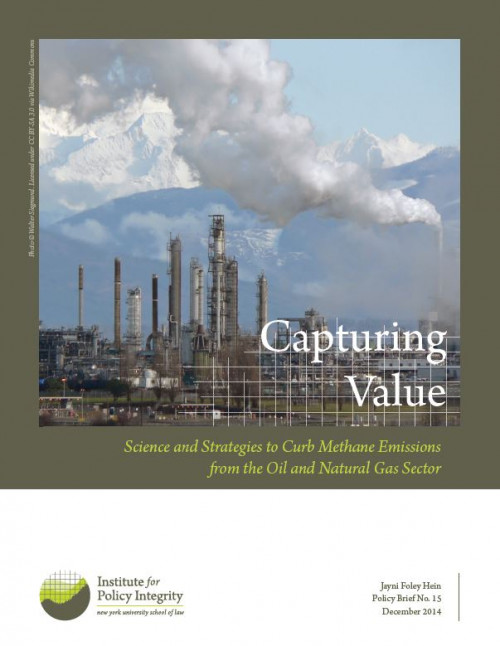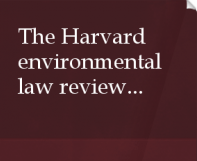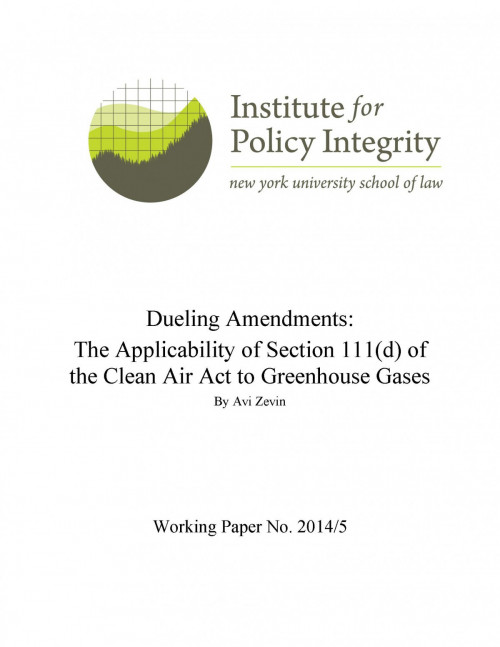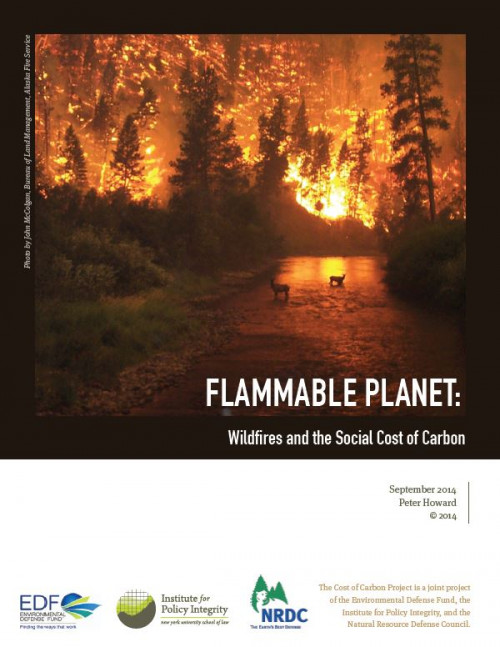-

Capturing Value
Science and Strategies to Curb Methane Emissions from the Oil and Natural Gas Sector
Methane, the primary component of natural gas, is a potent climate pollutant up to 86 times more powerful than carbon dioxide on a 20-year timeframe. Currently the United States loses at least 1 to 3 percent of its total natural gas production each year when methane is leaked or vented to the atmosphere. Federal regulations could reduce methane emissions by up to 50 percent at little or no net cost, using available technologies.
-

Interest Groups and Environmental Policy
Inconsistent Positions and Missed Opportunities
This Essay examines and explains the positions of the principal interest groups over the past four decades with respect to the two central questions of environmental policy: the appropriate policy goal and the instrument that should be used to carry out the policy. While environmental groups and industry have largely switched positions on the two central questions of environmental policy, the points at which their positions overlapped were fleeting, and opportunities to make substantial progress in rationalizing the system of environmental regulation have largely been unrealized.
-

Toward a More Rational Environmental Policy
This essay argues that U.S. environmental policy should operate in accordance with five major components of rationality: cost-benefit analysis; cost minimization; flexible market-based instruments; constraints on grandfathering; and the sensible allocation of decision-making authority between the federal government and the states. This past Term, the Supreme Court decided two significant cases, which together should be seen as producing a move toward rationality in environmental policy.
-

Dueling Amendments
The Applicability of Section 111(d) of the Clean Air Act to Greenhouse Gases
The United States Supreme Court determined that greenhouse gases (GHGs) were an “air pollutant” under the Clean Air Act in its ruling on Massachusetts v. EPA. The Environmental Protection Agency (EPA) has since taken steps to regulate GHGs under a rarely utilized provision of the Clean Air Act, section 111(d). Despite the text printed in the U.S. Code, the true text of section 111(d) is in doubt. This is because of a small but potentially significant legislating error that occurred during the creation of the 1990 Clean Air Act Amendments, when the Senate and House of Representatives made different revisions to section 111(d), both of which were passed by both houses of Congress and signed by the President. This paper analyzes whether the conflicting amendments to section 111(d) will prove to be a problem or an opportunity for EPA in its efforts to regulate GHGs.
This is a student working paper, and it does not necessarily represent the views of the Institute for Policy Integrity.
-

Flammable Planet: Wildfires and the Social Cost of Carbon
Climate change is expected to make wildfires more frequent and intense, with new areas facing wildfire risk. This could take a serious toll on the U.S. economy by expanding the area that wildfires burn 50 percent by 2050—and raising projected damages by tens of billions of dollars a year. Flammable Planet provides the first-ever estimate of the extent to which climate change will magnify the future economic costs of wildfires.
Viewing all publications in Climate and Energy Policy
